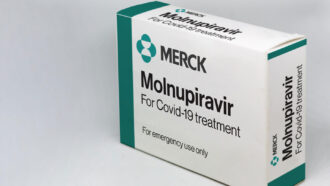
Hopes for an easy pill that could combat COVID-19 before people land in the hospital have dimmed a bit. New data about an antiviral pill made by Merck with its partner Ridgeback Pharmaceuticals show it’s not as stellar as first believed. And the drug has drawbacks that could outweigh its potential to fight the coronavirus and keep people out of the hospital.
The U.S. Food and Drug Administration is now weighing whether to grant emergency use authorization for the drug, called molnupiravir, after the agency’s advisory panel narrowly voted to recommend it on November 30. The drug was authorized for use in the United Kingdom on November 4. If the FDA follows suit, it could wind up being just a stopgap: Some advisers already have urged the agency to be ready to withdraw that authorization as soon as something better comes along.
Finding an early treatment hasn’t been easy, so many experts initially hailed the development of molnupiravir as a potential game changer for the pandemic: A pill that could be given to people early in the infection might help keep health care systems from being overwhelmed, and spare people at high risk from the most severe complications (SN: 7/27/21).
In a clinical trial, the drug showed early signs of preventing hospitalization and death from COVID-19 in people at high risk of severe disease (SN: 10/1/21). In fact, the results were so promising — a 48 percent reduction in the relative risk of hospitalization or death — that the trial was stopped so that the drug might potentially reach the public earlier.
But on November 26, Merck announced in a news release that when all the available data from the trial was in, the reduction in relative risk fell to 30 percent against hospitalization and death compared with a placebo. The shift stemmed from an unexplained decrease in severe disease among people in the placebo group in the last part of the trial.
In data collected from May 7 through August 5, 53 of 377 people (or 14.1 percent) in the placebo group were hospitalized and eight died (2.1 percent). In the molnupiravir group, 28 of 385 people (7.3 percent) were hospitalized and none died.
But an FDA analysis of subsequent data showed that from August 6 through October 2, 15 of the 322 people (4.7 percent) in the placebo group were hospitalized and one died (less than 1 percent). Of the 324 people who got molnupiravir during that time period, 20 (6.2 percent) were hospitalized and one died (less than 1 percent), making molnupiravir appear to produce worse outcomes than placebo.
Overall, among the 709 people in the molnupiravir group, there were 48 hospitalizations and one death compared with 68 hospitalizations and nine deaths among the 699 people who got a placebo, dropping the effectiveness from the initial 48 percent to 30 percent.
Split support
Taking that lower-than-expected efficacy into account, the FDA’s antimicrobial drugs advisory committee came to a split 13–10 decision about whether the antiviral drug should be granted emergency use authorization, with experts on each side of the vote often agreeing with points made by the opposing side. The debate and vote reflected a storm of uncertainty about the drug’s efficacy and who should use it — the list of people who would not be eligible is far longer than those most experts would give the drug to. The panel also queried whether the drug could lead to even more dangerous versions of the coronavirus, whether it can cause growth delays in children or mutations in human DNA, and other unanswered questions.
See all our coverage of the coronavirus outbreak
Virologist John Coffin of Tufts University in Boston said during the FDA meeting that he’s dreamed of a small molecule drug that could effectively treat viral infections. “I’m not sure [molnupiravir] is the one we’ve been waiting for, but it’s all we’ve got at the moment.” He voted in favor of the drug but was among those urging the FDA to reconsider if better options become available.
Something better might already be on the horizon if an antiviral pill made by Pfizer lives up to its early promise of an 89 percent decrease in hospitalization and death compared with placebo if taken within three days of symptom onset. That drug works differently than molnupiravir and may not have the same safety concerns.
Another early treatment, lab-made monoclonal antibodies, is already authorized for use in nonhospitalized COVID-19 patients (SN: 9/22/20). But that treatment has to be given intravenously, requiring a trip to an infusion center. Many people don’t have ready access to such a facility. Some new variants of the coronavirus can also evade some of these antibodies.
Drug drawbacks
Among the worries about authorizing molnupiravir is the possibility that the antiviral could spur evolution of more dangerous versions of the coronavirus. The antiviral pill works by making mutations in viral RNA so that viruses are rendered noninfectious and eventually stop replicating. Such mutations happen throughout the virus’s genetic instruction book, or genome.
Some of those mutations could land in the spike protein, which helps the coronavirus break into cells, or other proteins and make the virus more transmissible or more evasive to vaccines. That’s especially a fear if people don’t finish the full five-day course of the drug needed to render the virus inoperable, leading potentially to highly mutated new forms of the virus that could infect others.
“The potential for this drug to drive some very challenging variants into the public is of major, major concern,” said James Hildreth, an immunologist and president of Meharry Medical College in Nashville.
Merck representatives said that possibility is unlikely, because after five days of taking even a half dose of the drug, infectious viruses were no longer detectable among study participants tested. In one study, the company found seven patients who had changes in the coronavirus’s spike protein after taking molnupiravir, but there was no evidence that the viruses spread to other people or affected the patient’s health (none were hospitalized or died).
Molnupiravir might also create mutations in human DNA, researchers say. The drug is a nucleoside analog — an artificial RNA building block that can mimic the bases cytosine and uracil. Some enzymes in human cells might convert those RNA subunits to a DNA building block, which may lead to mutations in human DNA, especially in rapidly reproducing cells, such as blood cells. How likely that is is an open question.
Lab tests with bacteria and cells grown in lab dishes suggested that the drug might cause such DNA mutations under certain circumstances. But tests in animals suggested that the risk of such mutations actually happening in the body is low. To reduce the chance of such mutations happening, people would be able to take molnupiravir for no more than five days. That should be long enough to eliminate the virus but short enough not to cause lasting harm.
Limited eligibility
Animal studies have also indicated that molnupiravir might interfere with bone growth, so the drug probably would not be given to pregnant women or to children or adolescents. For three months, researchers gave rats doses of the drug nine to 15 times higher than people would receive. Those young rats had trouble converting cartilage at growth plates — tissue at the end of long bones that determines the bone’s future length and shape — into bone. But the problem wasn’t seen if rats were dosed for one month or if they got a dose similar to what people would get.
Such bone problems would not be an issue for adults, but more data are needed before giving the drug to kids or to pregnant women, experts say.
It’s also unclear whether the drug will help vaccinated people, or be effective against the delta variant. It’s efficacy also varied depending on a patient’s high-risk health condition. It was good at keeping people with obesity out of the hospital, but more people with diabetes ended up hospitalized while taking the drug than in the placebo group.
Filling a need
Still, there are no good remedies for people with mild to moderate COVID-19. Yet as of November 30, more than 82,000 people in the United States are being diagnosed with COVID-19 each day and more than 800 die. Those numbers are expected to increase as case counts surge in some parts of the country. The new omicron variant might add fuel to that fire if it proves more contagious than the currently dominant delta variant (SN: 12/1/21).
So even with all of molnupiravir’s drawbacks, federal regulators might decide a 30 percent reduction in hospitalizations and deaths is worth giving the drug temporary authorization.
The drug might be helpful for “the right patient population, the right virus at the right time,” said Lindsey Baden, an infectious diseases doctor at Brigham and Women’s Hospital in Boston who chaired the FDA’s advisory committee. “To me that at least suggests there are populations where there may be benefit.”
But more studies need to be done to address concerns about the drug, he said. “It’s the absence of data that makes many of us uncomfortable.”
President Joe Biden said December 2 during remarks laying out a plan to combat the omicron variant that the government has secured a supply of the drugs and, if authorized, will distribute them similarly to vaccines.

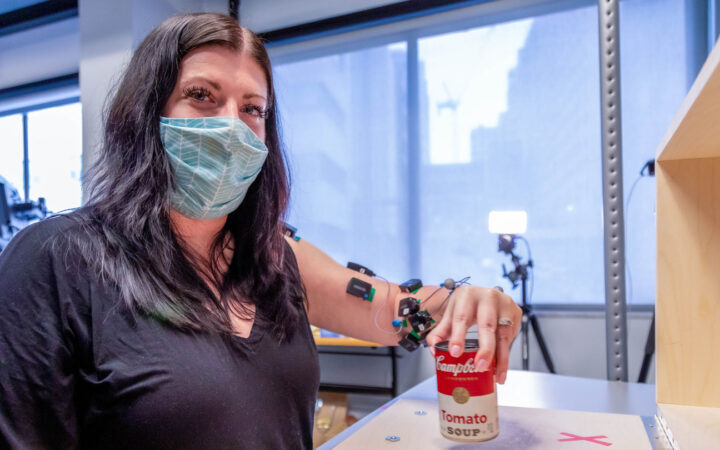 A new treatment could restore some mobility in people paralyzed by strokes
A new treatment could restore some mobility in people paralyzed by strokes  What has Perseverance found in two years on Mars?
What has Perseverance found in two years on Mars? 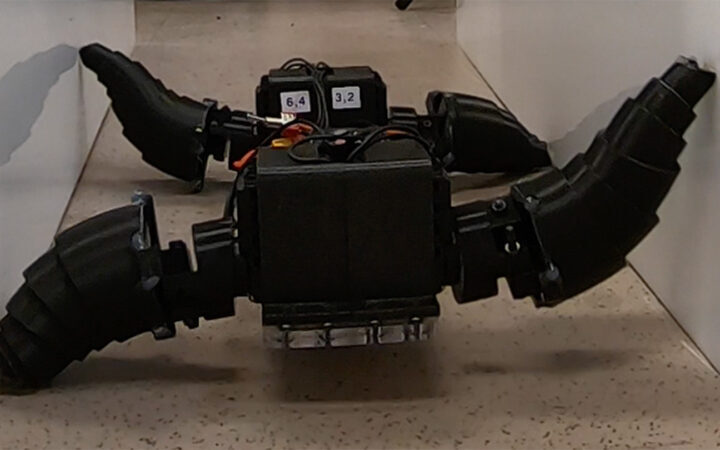 This robot automatically tucks its limbs to squeeze through spaces
This robot automatically tucks its limbs to squeeze through spaces 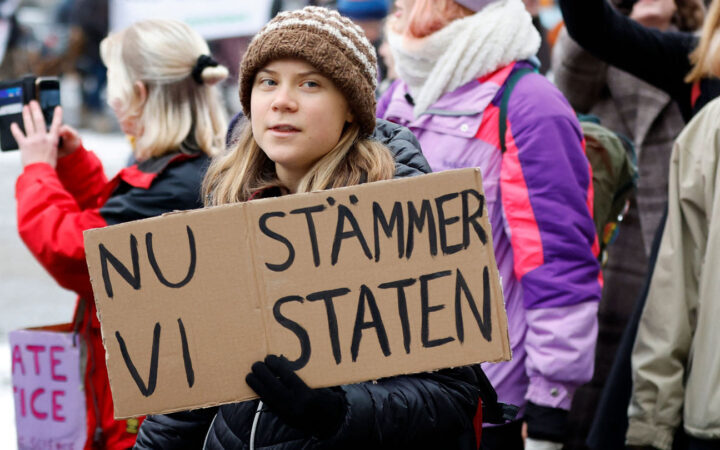 Greta Thunberg’s new book urges the world to take climate action now
Greta Thunberg’s new book urges the world to take climate action now  Glassy eyes may help young crustaceans hide from predators in plain sight
Glassy eyes may help young crustaceans hide from predators in plain sight 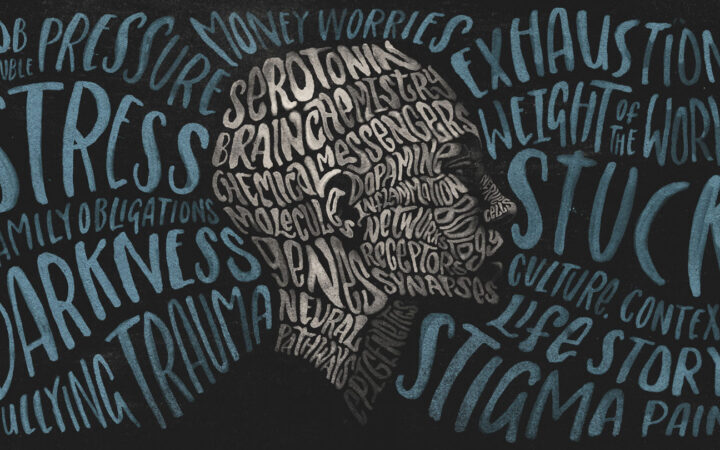 A chemical imbalance doesn’t explain depression. So what does?
A chemical imbalance doesn’t explain depression. So what does?